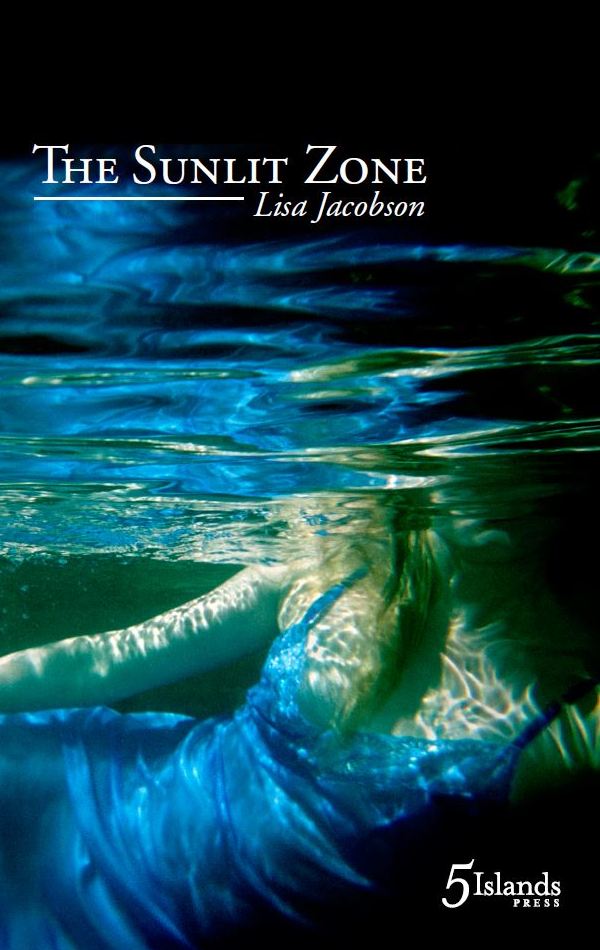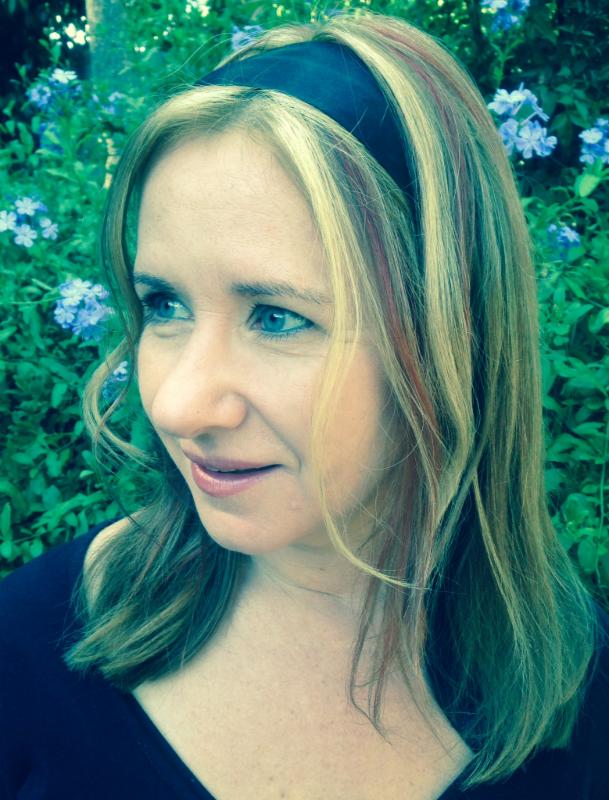Lisa Jacobson is an award-winning poet and fiction writer. Her collections of poetry are Hair & Skin Teeth (1995), The Sunlit Zone (2012), which won the Adelaide Festival John Bray Poetry Award and was shortlisted in four other national awards, and South in the World (2014). In 2011 she won the Bruce Dawe National Poetry Prize.
What first got you interested in poetry?
A few good English teachers and my mother, who guarded her kids’ creativity with ferocity. I was in high school and our teacher told us to go outside and write a poem. I remember sitting under a big tree. It must have been spring or summer because I recall the sun on the grass, and I must have been looking at the garden bed because it was there that I wrote my first poem, I think. It was called, rather pretentiously, “Dandelion as to Rose”. It wasn’t a very good poem at all but I look back fondly now on the young girl that I was, full of anguish and sentiment. Teenage girls don’t realise how beautiful they are until they are all grown up, but I digress.
In your course outline you use the lovely Robert Frost quote, ‘Writing a poem is discovering’. You’ve now written quite a bit of poetry – what have you discovered?
That the domesticity of our lives is still a valid and significant source for poetry, and it’s a source to which readers respond. That poetry can be the still, small voice in an increasingly prosaic world, speaking the concerns of its time (climate change, technology, terrorism, bureaucracy) in powerful and prophetic ways. But that there is a delicate balance, a very delicate balance, between poetry and politics – lean too far into politics and the poetry drops out, as does lyricism, warmth and intellect. That some poetry is not necessarily about anything but rather, it opens up an imaginative space in which the reader can move about. That one does not accomplish poetry in a week, a month or a year. In my case, it’s taken thirty years to discover the language of poetry and that I am still discovering it.
Your acclaimed work The Sunlit Zone took the form of a ‘verse novel’. Can you tell us a about  this form (traversing prose fiction and poetry), what are its challenges and rewards?
this form (traversing prose fiction and poetry), what are its challenges and rewards?
Writing a verse novel is like riding a horse; the story wants to gallop forward but the poetry reins it back. Maybe it feels like this to me because I ride horses and other poets might have different metaphors for the experience. The challenges for me were trusting the story to unfold and, also, being attentive to both poetry and story at the same time. My most useful alarm bells are boredom and clunkiness. If the writer is bored, the reader will be bored. If the verse sounds clunky, ditto. Reworking that verse novel was like combing for nits in the end, combing the lines over and over to eliminate weaknesses. It was a massive project, whose first pages were written on the shores of the Red Sea in the Sinai Desert after a scuba dive, and which took me years. The reward was knowing I’d honoured this odd story about ecological and personal trauma, which had clamoured to be written in verse and for some reason chose me. And the beautiful cover – I just love the cover. I say to people, if you don’t get around to reading the book, just hang it on your wall.
What poetry are you reading and enjoying at the moment?
On my bedside table I try to have something new, something classic and something from across the sea. Currently balanced precariously beside my clock radio & coffee cup: In The Museum of Creation by Frank Russo (Five Islands Press), Les Murray’s Collected Poems, and David Whyte (a new discovery).
Lisa Jacobson will travel from Melbourne to teach, Crafting Poetry, at the NSW Writers’ Centre on Saturday 22 August. To find out more and to book your place, click here.

